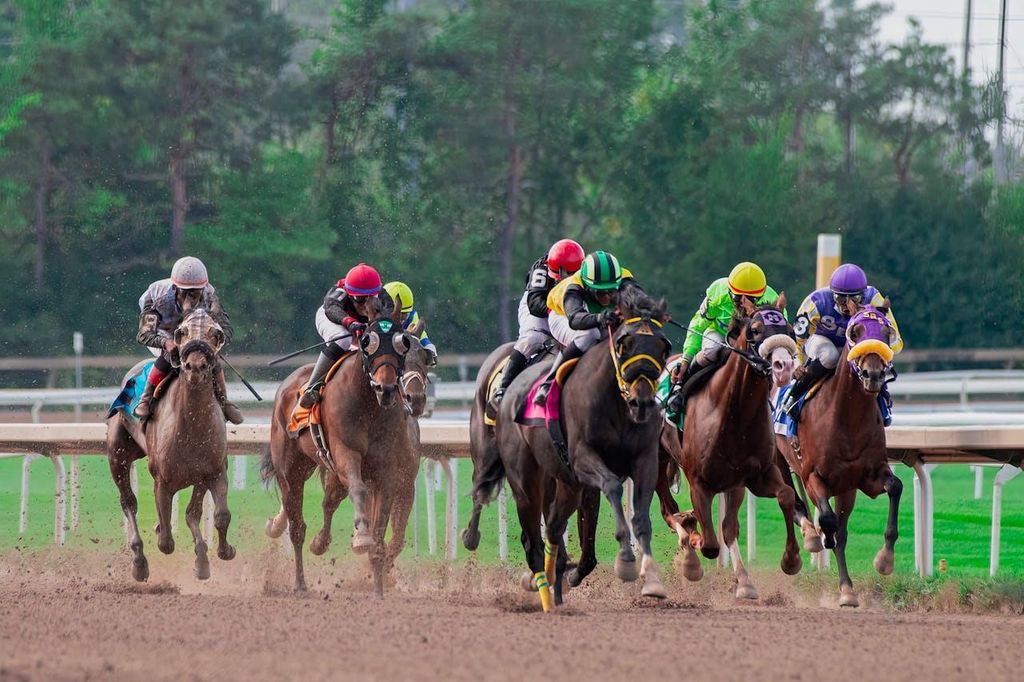Inside The Winner's Circle: The Strategy Behind Champion Racehorses
Jul 17, 2025 • 2 views

Have you ever wondered why some horses are slow, yet others turn out to be champions, winning every major race?
When you watch a champion horse win a race, leaving the competition far behind, you immediately think, “Wow, this horse is fast.” Yes, speed plays a role, but winning at the top level isn’t just about having four legs that move faster than everyone else’s.
There is a much deeper strategy behind every champion. It’s about bloodlines (horse’s potential), training, pace, form, and sync with the jockey. So, from breeding to training to race-day decisions, creating a champion horse is part science, part art, and let’s be honest, part gamble since nobody can predict whether or not the horse will become a champion.
So, let’s dive deeper into the science behind horse racing and find out the strategy that produces champions.
It Starts With the Bloodlines (Breeding)
Breeding is an entirely separate industry from horse racing. The goal here is to produce the next Usain Bolt, and breeders are trying to match horses with previous champion records, just to improve their chances of getting a horse with the potential to run fast.
The pedigree of a racehorse is like its blueprint. Breeders spend years and a lot of money matching stallions and mares that complement each other’s strengths. They dive deeper into stamina, speed, temperament, and even the shape of the horse’s legs or how big a heart the horse has (literally).
But breeding is also a gamble. Even if you get two champion racehorses, there is still a chance that the newly born horse won’t be a champion. However, there is evident data that bloodlines can improve the horse’s ability to run, which is why champion horses like Secretariat, American Pharoah, and any other that has won a major race like the Kentucky Derby get a million-dollar prize tag when it comes to breeding.
Training
Breeding is just one part of the job. Yes, you might get a horse that has the potential to become a champion, but all of that goes to waste if the horse doesn’t train properly. So, once the foal is born, the work really begins.
Trainers spent years building stamina, strength, and discipline in their horses. It isn’t like running fast every day until you win. Training requires a balanced approach between conditioning, rest, training runs, and even psychology.
Yes, they are also working on the horse’s psychology. Some horses are confident alphas and love being out front, while others can be shy or moody, and they like following a pack (which is not good for a sport like horse racing).
To make the trainer’s job more difficult, each horse requires a personalized approach, adjusting things like track surfaces (some hate mud), workout intensity, feeding schedules, and even recovery protocols.
Picking the Right Jockey
Jockeys are also an important part of the puzzle, and they are in charge of squeezing every bit of performance that the horse has in a race. They are not just regular passengers. They control the horse’s position, pace, and speed, which is really important in a race.
This means that the sync between jockeys and horses is also important. Most racehorse owners hire jockeys months before a big event, just so they have enough time to create a bond with the horse.
Choosing the Right Races
Just because you have a fast horse, it doesn’t mean that you should participate in every race. Some horses are good for certain track surfaces, and the track length (distance) also matters.
So, trainers and racehorse owners carefully choose which races to participate in. They look at things like track distance and surface, weather forecast, horse’s form, who else is running, and more.
This is a big deal in the horse racing industry, and even bettors and handicappers research the perfect races for each horse. Betting is a big part of the sport and can provide a lot of insights, even as a racehorse trainer or owner. So, if you don’t know much about betting, make sure to check out TwinSpires to find out more about types of bets and how horse racing betting works.
Therefore, it's not about going head-to-head with the best horses, even if your horse has incredible potential. After all, no horse could ever win every race that it participates in. If you push a great horse in the wrong direction, there is a chance that they could lose.
Pacing and Race Tactics
Let’s say you’ve got a horse with breakneck speed. Great! But if they bolt out of the gate and burn all their energy in the first half-mile, they’ll be crawling by the end.
Champions are taught to ration their power.
It’s about hitting the gas at the exact right time, just like in track and field. Knowing when to stalk the leaders, when to make a move, when to swing wide in the final turn.
Watch a champion like Zenyatta in her prime. She'd hang back like she was napping, then explode past the entire field in the final furlong like she just remembered she left the oven on. That’s not luck. That’s tactical brilliance.
Recovery and Maintenance
You think racehorses just chill on non-race days, eating apples and posing for Instagram? Not quite.
Recovery is crucial to maintaining top performance. That includes:
● Joint health monitoring
● Regular vet checkups
● Hydration tracking
● Therapies like cold-water soaking or laser treatments
Elite horses get better care than most humans. And if something feels off, even slightly, races are scratched, workouts are adjusted, and rest is prioritized. There’s no room for ego. A sore hoof today could ruin a career tomorrow.
That’s about it. And at the end of the day, horse racing trainers still don’t know how their horse will perform. This is a very unpredictable sport, and honestly, that’s what makes it exciting.
